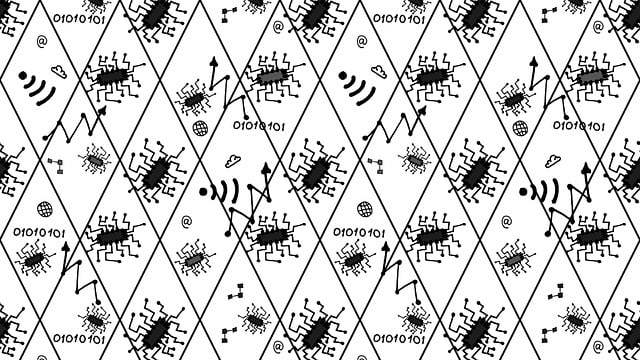AI assistants are transforming smart homes by serving as central command centers that coordinate devices via natural language processing. These systems allow users to control functions with simple voice commands, enhancing convenience and user experience. Over time, AI assistants learn individual preferences, offering personalized automations that adapt homes to occupant comfort. While raising security and privacy concerns due to data handling, proper measures like secure communication, user consent, encryption, and regular updates can mitigate risks. AI assistants hold immense potential for energy efficiency, simplified management, and tailored living environments by optimizing HVAC, predicting resident needs, managing multiple devices, providing real-time feedback, suggesting cost savings, and anticipating appliance issues.
Artificial Intelligence (AI) is transforming the way we interact with our homes, making them smarter and more responsive than ever. This article explores how AI assistants are revolutionizing smart home automation, offering personalized experiences and seamless voice control. We delve into security and privacy concerns, as well as future prospects, including enhanced energy efficiency and streamlined home management. Understanding the role of AI assistants is crucial for navigating this evolving landscape.
- The Role of AI Assistants in Smart Home Automation
- Enhancing User Experience: Personalization and Voice Control
- Security and Privacy Considerations in AI-Powered Smart Homes
- Future Prospects: AI's Impact on Energy Efficiency and Home Management
The Role of AI Assistants in Smart Home Automation

AI assistants are playing a pivotal role in transforming smart homes into truly automated and responsive environments. These intelligent systems act as the brain behind the scenes, orchestrating various devices and appliances to work seamlessly together. With natural language processing capabilities, users can simply voice their commands, such as “set the temperature to 22 degrees” or “turn on the living room lights,” and the AI assistant promptly executes these tasks.
The integration of AI assistants enhances user experience by providing a hands-free, convenient way to control smart home functions. They learn individual preferences over time, offering personalized suggestions and automations tailored to each resident’s needs. This level of personalization ensures that homes become more than just buildings; they become adaptive, intuitive spaces that cater to the comfort and convenience of their occupants.
Enhancing User Experience: Personalization and Voice Control

AI assistants are transforming the way we interact with our homes, enhancing the user experience through personalization and voice control. These advanced systems learn our habits and preferences, adapting to our routines and customizing various aspects of our living spaces. From adjusting lighting and temperature based on our schedules to playing our favorite music as we enter a room, AI creates a tailored environment that feels intuitive and responsive.
Voice control further revolutionizes the smart home experience by allowing users to interact with their AI assistants naturally. With simple voice commands, individuals can control devices, manage calendars, set reminders, and even engage in conversations. This level of accessibility ensures that everyone, regardless of age or ability, can navigate their smart home seamlessly, fostering a more inclusive living environment.
Security and Privacy Considerations in AI-Powered Smart Homes

As smart homes become increasingly integrated with artificial intelligence (AI) assistants, security and privacy concerns are at the forefront. With AI processing vast amounts of data within these homes, from voice commands to sensor readings, protecting user information is paramount. The advanced capabilities of AI assistants allow them to learn and adapt, but this very personalization could also make residents more vulnerable to potential cyber threats if not properly secured.
Ensuring secure communication between smart devices, users’ consent for data collection, and encryption methods are essential practices to safeguard privacy. Additionally, regular updates and patches for smart home systems can mitigate known security risks. Users must be aware of the potential consequences of their digital interactions within the smart home environment and take proactive measures to protect their personal information from unauthorized access.
Future Prospects: AI's Impact on Energy Efficiency and Home Management

The future of smart homes holds immense potential with AI assistants playing a pivotal role in enhancing energy efficiency and simplifying home management. These intelligent systems can optimize heating, ventilation, and air conditioning (HVAC) by learning occupant patterns and adjusting temperatures accordingly, reducing energy consumption. By analyzing data from various devices, AI can predict and anticipate resident needs, ensuring resources are used only when necessary. For instance, an AI assistant could automatically adjust lighting based on natural light availability, or manage appliance usage to avoid peak energy demand periods.
Moreover, AI-powered virtual assistants can act as a central command center, managing multiple smart devices in the home. They can provide real-time feedback on energy use, offer tailored suggestions for cost savings, and even predict potential issues with appliances or systems. This level of integration and automation promises to make homes more efficient, sustainable, and responsive to resident preferences, ultimately transforming the way we interact with our living spaces.
